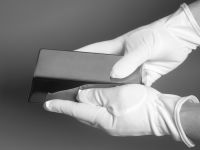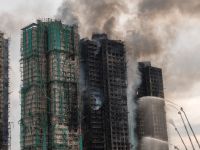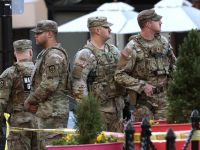President Bush on Wednesday signed an Iraq war resolution overwhelmingly approved by Congress and told wary world leaders to "face up to our global responsibility" to confront Saddam Hussein.
"Those who choose to live in denial may eventually be forced to live in fear." "Every nation that shares the benefits of peace also shares the duty of defending the peace," he said.
Bush summoned some 100 supportive lawmakers to the East Room of the White House as he signed the newly passed resolution authorizing the use of force, if necessary, to disarm Iraq.
Bush used the speech to press the U.N. to adopt a new resolution compelling Iraq to submit to unconditional weapons inspections. "We will defend our nation and lead others in defending the peace," the American leader said.
Bush said military action would be his last resort, but added "Our goal is to fully and finally eliminate a real threat to world peace and to America."
Referendum
Saddam Hussein won another seven-year term as Iraq's president in a referendum in which he was the sole candidate, taking 100 percent of the vote, the Iraqi leader's right-hand man announced Wednesday.
All 11,445,638 of the eligible voters cast ballots, said Izzat Ibrahim, vice chairman of the Revolutionary Command Council that is Iraq's key decision-making body.
"This is a unique manifestation of democracy which is superior to all other forms of democracies even in these countries which are besieging Iraq and trying to suffocate it," Ibrahim said at a news conference in Baghdad.
Turkey
Turkish Prime Minister Bulent Ecevit was quoted Wednesday as saying the United States would be unable to carry out an attack on Iraq without Turkish support and that he was urging Washington to abandon the idea.
"We are telling them (the United States) we cannot agree to all that they want," Ecevit said in comments published on the NTV television Web site.
"We know the USA can't carry out this operation without us," he said. "That's why we're advising that it abandon the idea. We're telling (Washington) we're worried about this matter."
Diplomatic moves
On the diplomatic front, US Secretary of State Colin Powell said France had presented new ideas to break the impasse over UN action. "We will be responding to those ideas, and we'll see how things unfold," Powell said during a break in talks with British Foreign Secretary Jack Straw.
"The negotiations are intense, but they are continuing, and I'm hopeful that we will find a solution."
Chief inspector Hans Blix said Tuesday he would wait for the Security Council to adopt a new resolution.
The push has been for an advance party to arrive in Baghdad by Oct. 19, but Blix said that since the council is still debating a resolution "it is evident" the U.N. team won't get there by then.
"It would be awkward for us to be in Iraq with inspectors deployed and then have a resolution falling down from the Security Council giving us a lot of new instructions and perhaps requiring new practical arrangements," he said. "We've waited now for almost four years (to return) so we'll have a little patience with the Security Council."
On his part, French President Jacques Chirac said in an interview published Wednesday he knew of no relationship between Iraq and al-Qaeda and warned that a war on Baghdad could provoke terrorists to stage new attacks.
Speaking to Lebanon's L'Orient Le Jour newspaper ahead of a visit to Beirut, Chirac said: "To my knowledge, no proof has been found, or in any case officially made public, of a link between Iraq and al-Qaeda. "Even if some terrorists have found refuge in Iraq, you mustn't mix up issues," he said, adding that "the main aim of the international community concerning Iraq must be disarmament."
Chirac said that an attack on Iraq might also have repercussions for what the United States terms a worldwide "war on terror." "We cannot exclude terrorist groups using the Iraqi matter as a pretext for new actions and as a basis for propaganda," he said.
The French leader said that the feeling of injustice shared by many Arabs watching the Israeli-Palestinian conflict could widen if Iraq was also brought into the fray. "Our responsibility is to look after stability in the Middle East. With the Iraqi crisis, it's the whole region that is threatened," he told the Lebanese newspaper.
Bombardment
Meanwhile, US and British warplanes bombed a communication center southeast of Baghdad. The US Central Command said allied warplanes bombed the communications facility about 160 kilometers southeast of Baghdad in response to a surge in provocative Iraqi challenges to British and US aircraft enforcing no-fly zones in Iraq.
The facility was a node in a network of fiber-optic cable that Iraq has used to link its radars to command centers for surface-to-air missiles, a Pentagon spokesman said, according to AFP. (Albawaba.com)
© 2002 Al Bawaba (www.albawaba.com)









